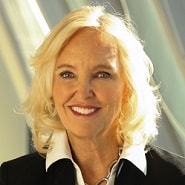
Liz Johnson, Vice Chair, CHIME Policy Steering Committee (Retired Chief Innovation Officer, Tenet Healthcare)
Every CIO has received the email at one time or another: “I just read about (fill in name of the act, rule, policy change here) in (publication name here). What does this mean for us?” signed by your CEO or someone else on the hospital leadership team. The last thing you want is to be caught flat-footed, scrambling to find an answer. When it comes to public policy, a CIO should be prepared – or better yet, be proactive.
Today more than ever, we need senior health IT executives to be ahead of the policy decisions made by our federal agencies, members of Congress and the administration. At a minimum, we must make it part of our job to be well informed about digital health regulations and legislation that can impact workflow and patient care. When we get that email in our inbox, we already should have the answers, as well as the tools to help our hospitals and health systems accommodate new state and federal guidelines and regulations.
But we can do more than that. CIOs have many opportunities to weigh in on policies before they are finalized, and offer our insights and perspectives on how these changes might help or hinder our mission. No one knows better than us how digital health regulations might remove a barrier or disrupt care. That’s why it is so important that we make sure our voices are heard in our state capitals and in Washington, D.C. The question is, how?
This month, we have a chance to meet and talk with some of the most influential policymakers in D.C. at the CHIME Advocacy Summit. You don’t have to be a member of CHIME to attend; you don’t even need to be a CIO. All it requires is a willingness to learn and a desire to make a difference. CHIME and I have a long history together, going back to my earliest years at Tenet Healthcare Corporation and through my roles as chief clinical information officer, chief information officer and most recently chief innovation officer. Joining, leading and now serving as the vice chair on CHIME’s Public Policy Steering Committee has been a rewarding experience, and it has shown me why we need educational and networking programs like the Advocacy Summit.
Take Meaningful Use as an example. In its early period, members and CHIME’s policy team focused on requirements that truly advanced digital health rather than metrics that did not improve clinical outcomes or align with caregivers’ workflow. It was a give-and-take process of educating and working with policymakers, building mutual trust and respect, and persisting – lots of persisting. All that work was worth the effort when CMS revised its timeline to delay reporting on requirements that, in essence, were just coming out. That was a relief to CIOs across the nation.
Digital health’s role in patient care is only getting larger, which is why we need you — every one of you — to get engaged and help shape policies. What might be an administrative annoyance for a large healthcare system like Tenet could be an immense burden for a small or rural hospital, for instance. Having viewpoints from many types of healthcare organizations in many diverse geographical regions gives decision-makers a broad understanding of the benefits and challenges of their proposed ideas. Without that, we run the risk of getting one-size-fits-all regulations that distract us from doing what we do best – using technology to make health and care better in our communities.
I hope you can join me at the CHIME Advocacy Summit on June 26-28. You can learn more here. If you can’t make it, be sure to look for coverage in healthsystemCIO.com and visit CHIME’s website for updates.
Liz Johnson, MS, FAAN, FCHIME, FHIMSS, CHCIO, RN-BC, is the retired chief innovation officer at Tenet Healthcare and vice chair of the CHIME Policy Steering Committee.


Share Your Thoughts
You must be logged in to post a comment.